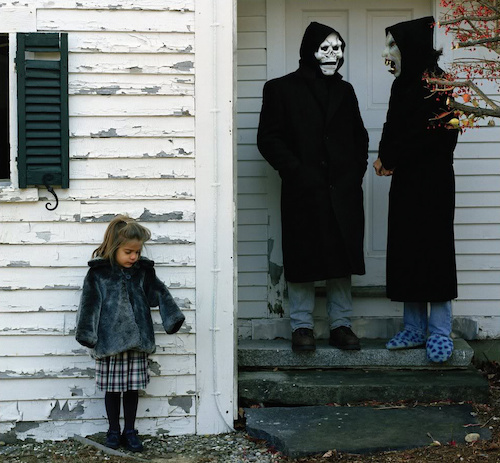Brisbane’s pop-punk upstarts Two Times Shy are soaring lofty heights as they let loose their …
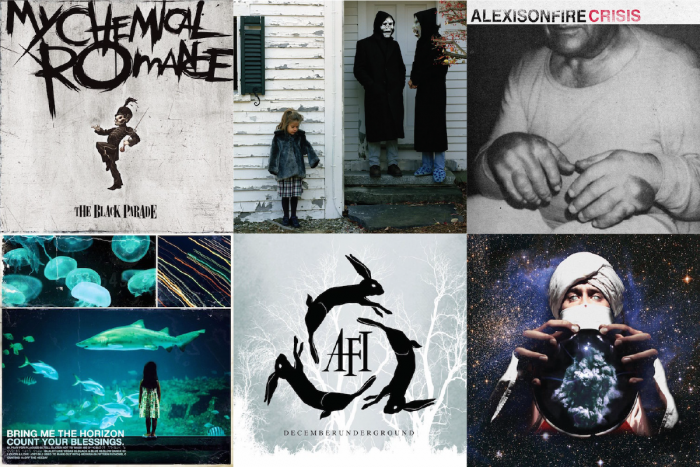
So we’ve dropped the ball and missed New Years. Is it really 2017 already? 2016 marked the 10th year anniversary of many great albums that paved the way for all kinds of awesome. Here are some of our favourite albums from 2006.
Dragonforce
Inhuman Rampage
It’s rare to find a person that’s actually listened to Inhuman Rampage all the way through, without suffering a major neck injury, severe carpal tunnel or just straight-up catatonia. And while English power metallers Dragonforce might pack way too much shit into the 57 minutes and eight tracks on offer for their third album, it’s definitely a notable release for two important reasons: one, the balls-out, ridiculousness of lead single Through The Fire and Flames; and two, that single’s inclusion on Guitar Hero III: Legends of Rock. Dragonforce may not have cemented their place in Rock’s Hall of Fame with subsequent releases, but you can bet your arse that when Through The Fire and Flames comes on—regardless of setting or atmosphere—even the most reserved and unmusical of people will feel compelled to air guitar like it gives them oxygen. It’s essentially the Red Bull of metal music: fast, fleeting and oh so sugar-sweet. //Owen Morawitz
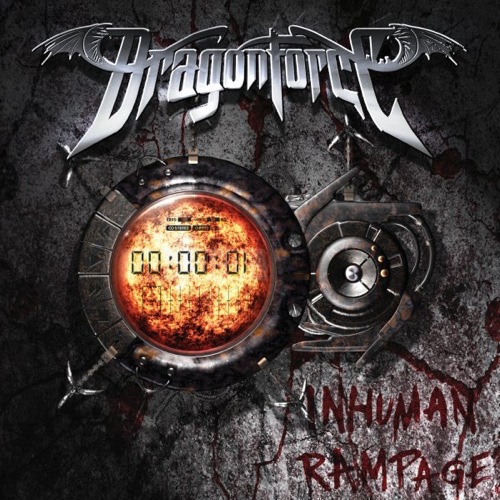
The Sword
Age of Winters
On their debut studio album, Texans The Sword took a firm swing at the ‘retro-metal’ vibe churned out by peers like High On Fire and Aussie contemporaries Wolfmother, and then dialled their amps up to fucking 11. Age of Winters is an exercise in perfectly executed riff-delivery, with each pick and bend sliding across lumbering, dense passages, headbang-inducing chug patterns and soaring melodies. This was 21st century heavy metal done right, with a solid balance of ritualised traditions and dazzling experimentation. If you don’t have whiplash from the opening riff in Freya, or you’re not gleefully stoked on the howling-fucking-wolf sample in Winter’s Wolves, then you probably don’t deserve that battle jacket after all. You poser. //Owen Morawitz
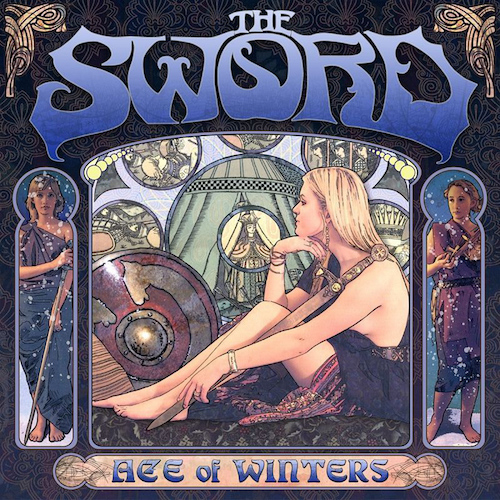
Amorphis
Eclipse
Coming up to 10 years since Tales from the Thousand Lakes, Amorphis was starting to look like a legacy band. You know, the type with one great album and little else. Dumping Pasi Koskinen for Beefmaster General Tomi Joutsen, Amorphis’ second golden era bloomed into Eclipse. From opener Two Moons through to elegiac Empty Opening, it was a space-operatic trip through the Finnish folklore masterwork, Kalevala. Though it arrived around the same time as retro-posers Wolfmother and the like, the Finns’ dedication to atmosphere by riff and voice was unstoppable—even by the band itself. //Tom Valcanis
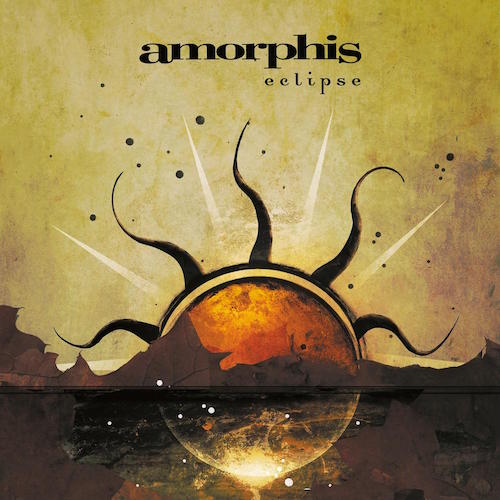
The Getaway Plan
Hold Conversation EP
Years before they hit the Rove Live stage (yeah, remember when that was a thing?) and introduced ‘emo’ into the normie Aussie vernacular with the bona fide, radio banger Where The City Meets The Sea, Melbourne’s The Getaway Plan dropped one of Australia’s most accomplished post-hardcore releases, in the form of their Hold Conversation EP. Building off the sound of international peers like The Used and Silverstein, tracks like Vesper and The New Year showed that lead vocalist Matthew Wright’s honey-drenched pipes were the perfect match for a fierce, buzz-saw guitar attack, courtesy of future Amity cohort Clint Splattering and Benny Chong. While single If the Suspense Doesn’t Kill Us, Something Else Will … earned the group some solid Triple J rotation, it was the piano-ballad closer An Afterword which ultimately hinted at the band’s future pop potential. //Owen Morawitz
ISIS
In the Absence of Truth
Post-metal veterans ISIS (and no, not that ISIS…) were at the very top of their game during the mid-2000’s, and it’s hard to imagine the California group topping the truly grand, epic scale of 2004’s stellar Panopticon. However, on their direct follow-up and fourth full-length album, the L.A.-based five piece managed to raise the bar in almost every way possible: impenetrable, walls-of-sound riffage (Not In Rivers, But In Drops and Over Root And Thorn); luscious, delay-driven textures (1,000 Shards); electronic squelches and complex, tribal drumming (Firdous E Bareen); alongside vocalist Aaron Turner’s fearless blend of smooth croons and guttural growls (Dulcinea and Holy Tears). In The Absence of Truth had ISIS at their most expansive, progressive and unrestrained—and it’s still utterly captivating. //Owen Morawitz

Crime In Stereo
The Troubled Stateside
With the one-two punch of the incendiary Everything Changes/Nothing Is Ever Lost and the hyper-melodic Bicycles For Afghanistan, LP #2 from Long Island, New York punks Crime In Stereo went off with an impressive bang. The latter track’s huge chorus of “And so we drift together …” signified the band’s potential to think outside the rigid framework of their melodic hardcore/punk rock origins, in the vein of A Wilhelm Scream and Lifetime, and would ultimately see the group team up with producer Mike Sapone once again for 2007’s Brand New-inspired masterpiece … Is Dead. But even a decade on, ripper tracks like Sudan, Gravity/Grace, For Exes and fan-favourite Dark Island City sound more glorious than ever, while the ambitious, closing title track takes lyrical pot-shots at a GWB-era U.S.A, sounding oddly prescient coming out of 2016’s recent election circus. Perhaps Nothing Changes/Everything Is Lost is more appropriate now. //Owen Morawitz
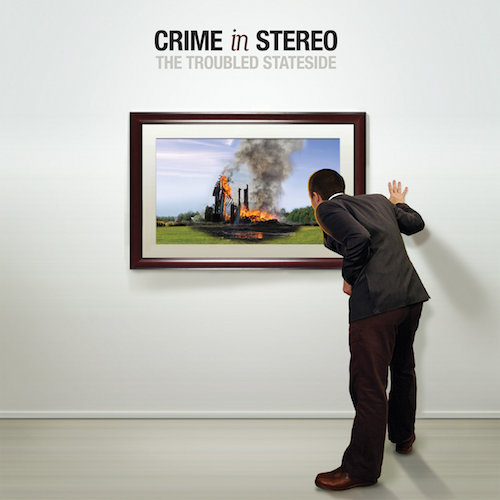
Carpathian
Nothing to Lose
While local acts like Parkway Drive and IKTPQ were heading overseas to put Aussie hardcore/metalcore on the map, Carpathian were the band-to-be back home, absolutely dominating the national live-front with packed All-Ages shows and support slots for big names like Bleeding Through and Killswitch Engage. Their Resist Records debut Nothing To Lose built successfully off the group’s destructive live show, and found them pedalling their own distinct brand of On Broken Wings-meets-Bury Your Dead, mosh-metal mayhem. Tracks like Love Song, Suckerpunch and Who The Fuck Taught You Snaps? showcased wrecking-ball breakdowns, catchy two-step rhythms and huge, gang vocal sections. Comparing this iteration of the band to 2008’s Deathwish Inc. alumni, Ian Curtis-fanboy version is a bit like the old ‘apples vs oranges’ debate, but there’s no denying that Nothing To Lose still packs a hell of a punch ten years on. //Owen Morawitz
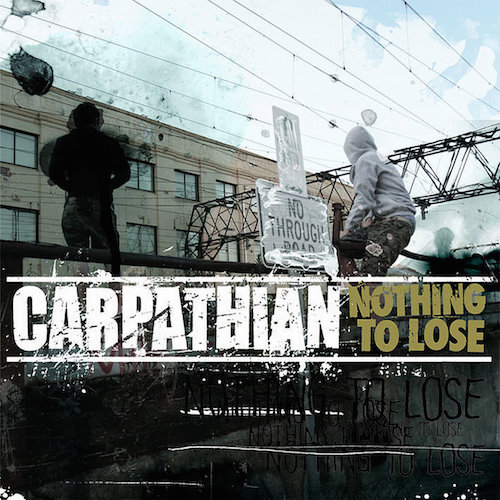
Taking Back Sunday
Louder Now
Riding the high from the success of their debut album, emo/alt-rock outfit Taking Back Sunday recruited guitarist/vocalist Fred Mascherino after the departure of original member John Nolan for 2004’s stellar Where You Want To Be, and by the time they got around to recording their follow-up two years later, the Long Island five-piece were lean, mean and ready to flex their songwriting muscles. It’s no surprise then that their third LP Louder Now is the Long Island group’s most dynamic and commercially successful record. Singles like MakeDamnSure and Twenty-Twenty Surgery hinted at a pop-versatility that could capture the attention of the mainstream, with Mascherino and lead vocalist Adam Lazarra pushing their call-and-response vocal pairing to glorious new heights. While founding member and principal songwriter Eddie Reyes finally cut loose and unleashed some of the band’s heaviest material, in the form of moshpit ragers like Up Against (Blackout) and Spin. If we turn a blind eye to the extremely ordinary chorus in Miami, Louder Now is almost a flawless album and easily one of TBS’s best. //Owen Morawitz
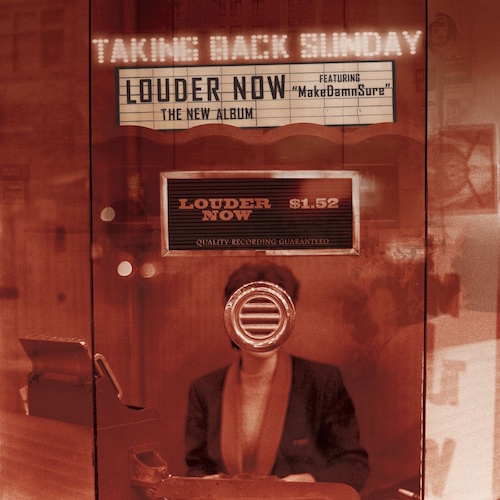
AFI
Decemberunderground
If 2006 is to be remembered for anything, it’s being the year of peak emo. Myspace page layouts, side fringes, bullet belts and spray-on skinny jeans: the stuff people block out as a traumatic episode, only for Facebook to throw that shit back at you as a ‘memory’ for all the digital world to see ten years on. But for alternative punks AFI it was a banner year, with their seventh album Decemberunderground making a grandiose and stadium-ready entrance, as vocalist Davey Havok whispers “Kiss my eyes and lay me to sleep” over the top of a huge drum beat, handclaps and swelling strings. What follows is a textbook execution of emo-pop, with the blistering Kill Caustic, Miss Murder’s infectious chorus, the sombre Love Like Winter, and guitarist Jade Puget’s anthemic power chords on Endlessly She Said. While it may have tied with The Black Parade for ‘most emo album of 2006’, Decemberunderground ushered in a new age of popularity and success for AFI and was definitely in our Top 8 at the time. //Owen Morawitz
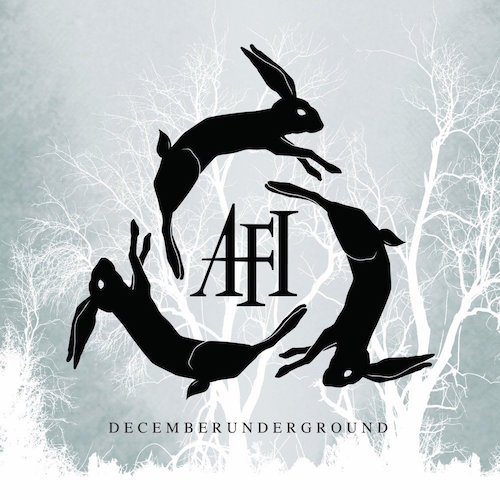
Underoath
Define the Great Line
For many long-time Underoath fans, the sheer, gargantuan heaviness of their magnum opus Define The Great Line came almost entirely out of left field. A far-cry from the honey ‘n’ vinegar balladry showcased with the melodic posthardcore of 2004’s smash-hit They’re Only Chasing Safety, the group’s follow-up instead took a much darker, tortured turn, recalling dissonant metalcore greats like Coalesce, Botch and Norma Jean. Singles like the crushing opener In Regards To Myself and Writing On The Walls revealed a bestial and vitriolic Underoath; a young sextet conflicted by faith and purpose, desperately working out their pent-up anger and frustration through music, treating every note as if it were their last dying breath. Tracks like the frenetic Moving for the Sake of Motion, or the lumbering, post-metal soul-searching of Casting Such a Thin Shadow, still resonate today with a sense of palpable urgency and visceral energy which all but solidifies Define The Great Line’s place as a metalcore classic, and the Florida band’s defining moment. //Owen Morawitz
Rise Against
The Sufferer and the Witness
Backing up 2004’s anthemic Siren Song of the Counter Culture was always going to a tall order of business, but for Illinois natives Rise Against, it was just another chance to prove themselves. The Sufferer & the Witness showed that ‘major-label’ hardcore was a real and tangible objective, something which could overcome scene politics and derision, to deliver a record that radiated with passion, honesty and sincerity. Critics agreed that the band matured in their songwriting and the expansion of vocalist Tim McIlrath’s lyrical platform, while production from The Blasting Room Studio team of Bill Stevenson & Jason Livermore ensured that hits like Ready to Fall, Prayer of the Refugee and The Good Left Undone would become fan favourites for many years to come. //Owen Morawitz
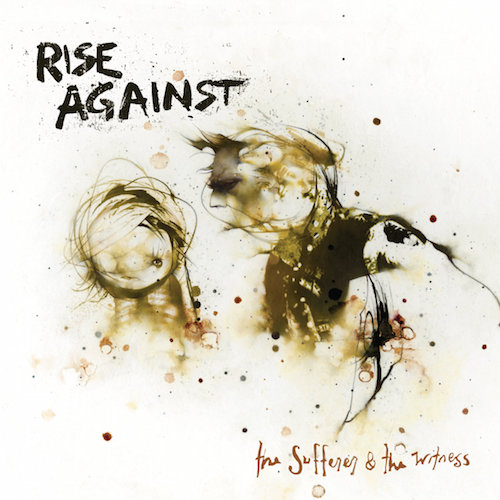
The Bronx
The Bronx
Although Shitty Future sounds like a cry of ominous portent from our current position in history, it was one of the catchiest and high-octane bursts of punk-rock fury in 2006, and helped to herald a new sound and sonic exploration for Cali beasts The Bronx. On their second self-titled effort, following up their 2003 debut, the L.A. group grabbed hardcore punk by the scruff of the neck and dragged it kicking and screaming into the major-label mainstream, with blistering anthems like History’s Stranglers, Oceans of Glass, Mouth Money and the affectionately titled Rape Zombie. Vocalist Matt Caughthran delivered a knockout performance, switching effortlessly between a fragile croon and furious, blood-curdling screams, which only makes the band’s Mexican alter-ego incarnation Mariachi El Bronx (2009) seem even more incredible in retrospect. //Owen Morawitz
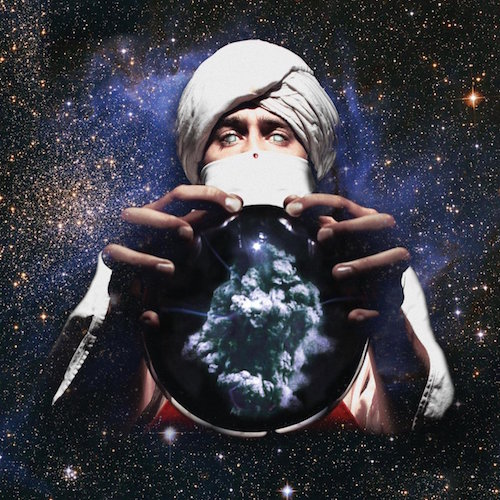
I Killed The Prom Queen
Music for the Recently Deceased
After the breakout success of Parkway Drive’s Killing With A Smile the year before, Adelaide metalcore act I Killed The Prom Queen needed to strike while the iron was hot: a case of ‘shit out some tough breakdowns, or get off the mosh pot’. And they did not disappoint. The group flew to Sweden to record with Studio Fredman maestro Fredrik Nordström of In Flames and At The Gates fame, booted out original vocalist Michael Crafter, and then quickly replaced him with English-import Ed Butcher. The resulting effort—their second full-length album, Music For The Recently Deceased—was the group’s most cohesive and complex collection of songs to date, with guitarists Jona Weinhofen and Kevin Cameron taking the songwriting reins, mixing their love of European melo-death riffs with brutal beatdowns, angelic choruses and Butcher’s raspy screams. Songs like Sharks In Your Mouth, Say Goodbye and Bet It All Black whipped crowds into a frenzy and saw the band tour successfully at home and abroad, all before Butcher unceremoniously bailed on IKTPQ shortly after the album’s release. Ouch. //Owen Morawitz

Alexisonfire
Crisis
For Canadian post-hardcore sensations Alexisonfire, Australia has always been a second home. Which is why Crisis, the group’s third full-length, managed to land at #37 on the ARIA charts, while hitting #1 in their frost-bitten homeland. Stacked in the front with banger singles like Drunks, Lovers, Sinners & Saints, This Could Be Anywhere in the World and Boiled Frogs, it was the first record to feature the five-piece’s now-prominent, three-pronged vocal attack, with George Pettit’s animalistic screams, alongside guitarists Wade McNeil and Dallas Green trading smooth, majestic croons and catchy refrains. Crisis also features some of the band’s darkest material, with Planes Mistaken For Stars frontman Gared O’Donnell surfacing on the whiskey-soaked dirge You Burn First, while the sombre, piano-driven closer Rough Hands has since become an epic, live staple. //Owen Morawitz
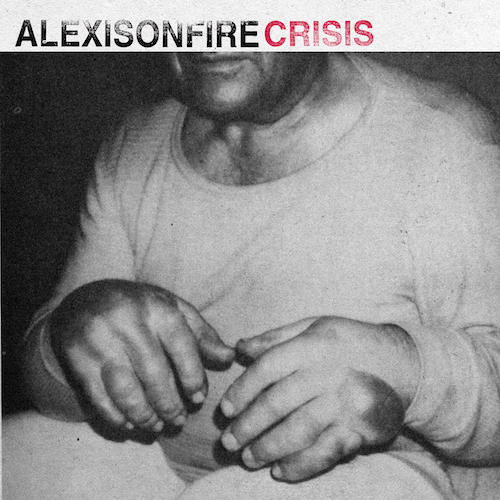
Mastodon
Blood Mountain
How does a hyped-to-shit band top a hyped-to-shit album? Not that the hype wasn’t warranted of course. Imagining a metal scene without Leviathan isn’t worth imagining. Blood Mountain arrived at the peak of Mastodon’s season. The Atlantan un-classifiables were still heavy as shit, trippy as balls and cool as fuck. Josh Homme doesn’t drop vocals on your album without a reason, dogg. This trinity of awesomeness didn’t come along again for many a year—possibly the year of Kvelertak’s debut. Baroness, Kylesa and Red Fang thank y’all, kindly. //Tom Valcanis
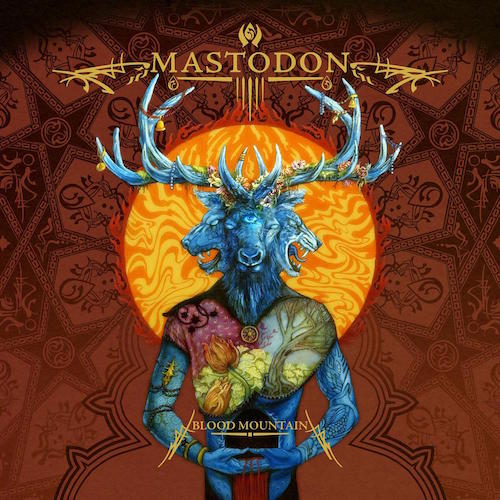
Gallows
Orchestra of Wolves
When punk hardcore outfit Gallows dropped their debut album, it hit the UK music scene like a fucking wrecking ball. The press went suitably batshit, with Kerrang! calling them “the best British punk band since The Clash,” and Total Guitar describing them as “one of the finest displays of sneering, snotty attitude since The Sex Pistols.” And it only takes one listen of Orchestra of Wolves to see why. Lead by a kinetic fire-brand, in the form of a young Frank Carter, Gallows delivered one of fiercest debuts in recent memory, with the off-kilter violence of Kill The Rhythm, the vitriolic explosion of Will Someone Shoot That Fucking Snake, and the unnerving despair of Abandon Ship. Carter’s razor-sharp, sardonic lyricism seared the band’s legacy into the minds of fans, with the infectious chorus of In The Belly Of A Shark and the devilishly cheeky exploits of the title track. If The Bronx, Black Flag and Refused were pitted against one another in a deadly, back-alley knife-fight, while a handsome stranger played church organ in the background, it would sound awfully similar to the barely-contained ferocity of Orchestra of Wolves. //Owen Morawitz
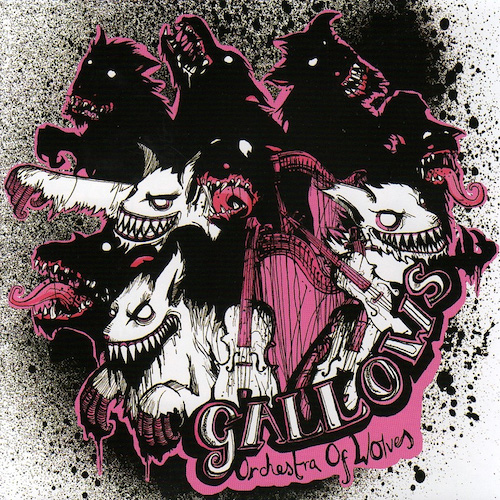
Escape The Fate
Dying is Your Latest Fashion
While contemporaries like Atreyu and Avenged Sevenfold were merely hinting at a love for ’80s glam in amongst their metalcore assaults, Vegas playboys Escape The Fate decided to make ripped denim, big hair and aviator-rimmed guitar solos part of their DNA. Formed in 2005 and bursting out of the gates with their debut, Dying Is Your Latest Fashion a year later, Escape The Fate successfully synthesised post-harcore melodies and metalcore aggression with a glam aesthetic and a big dash of old-school, ‘we don’t a fuck’ rockstar attitude. And it worked. Watch the video for lead single and the Hot For Teacher-worshipping Situations, and try not to grin like a lunatic. This album is also noteable for being the only Escape The Fate record to include outspoken mouthpiece Ronnie Radke as vocalist, who was incarcerated shortly after it’s release. It also gifted us with years of follow-on scene-beef and hot-gossip, culminating in Radke’s release from jail and the birth of the cockroach-underneath-the mushroom-cloud band that is Falling In Reverse. //Owen Morawitz

My Chemical Romance
The Black Parade
Even in the mid 2000’s, emo was moving forcibly into self-parody and bubblegum mall-punk, as major labels and mainstream audiences diluted the genre’s trademark for expressive, confessional lyrics and emotive, angst-ridden instrumentation. However, it took a young quintet from the streets of New Jersey to show that emo was still a force to be reckoned with, and that of all things, it could go prog and pop, without losing it’s soul. On their third studio album, The Black Parade, My Chemical Romance advanced their narrative of life, death and loss on 2004’s Three Cheers for Sweet Revenge, mixing it with macabre imagery and rock-opera theatrics to create a bombastic and visionary album, that exploded with huge choruses and infectious melodies on tracks like Welcome to the Black Parade, Teenagers and Famous Last Words. Vocalist Gerard Way’s penchant for visual art and comic books helped to lend a deep sense of gritty realism to the album’s aesthetics and underlying concept: a terminal cancer patient, on the brink of death, searching for revenge and redemption. As the definitive statement for emo’s potential, The Black Parade was one of the more memorable rock albums of the decade and remains My Chem’s magnum opus. //Owen Morawitz
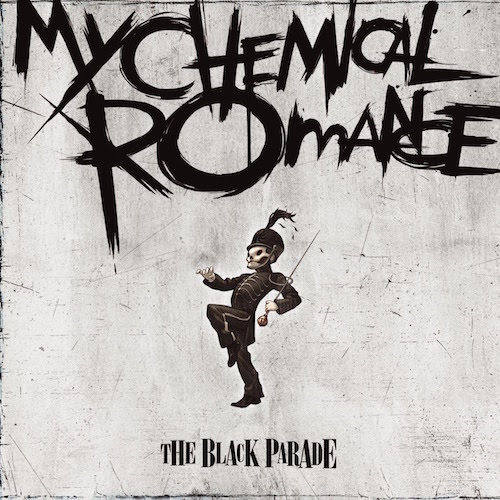
Bring Me The Horizon
Count Your Blessings
Before they turned into Coldplay-with-hand-tatties, and put a fucking saxophone solo in one of their songs (just quietly, it’s actually a banger), Sheffield five-piece Bring Me The Horizon were conquering the metalcore landscape with the mid-2000’s, Myspace variety. Some people might call the band’s debut album Count Your Blessings ‘deathcore’, but some people are also really fucking stupid. Yeah, it’s very, very angsty and on-the-nose juvenile at times, but it also feels like vocalist Oli Sykes is just reading aloud texts that he sent to his exes, over the top of stomping breakdowns, gang vocals, flirtatious blast-beats and pinch harmonics. All this aside, tracks like (I Used To Make Out With) Medusa, Off The Heezay and Braile are still plenty of fun, albeit if only for nostalgia’s sake. Try singing along to “The sun goes down/And so does she” from Pray For Plagues, and not grin like a truant high-schooler. Many sonic left-turns later, BMTH may not sound like this after a decade, but we all have to start somewhere. “Bitccccchhhhh!” //Owen Morawitz
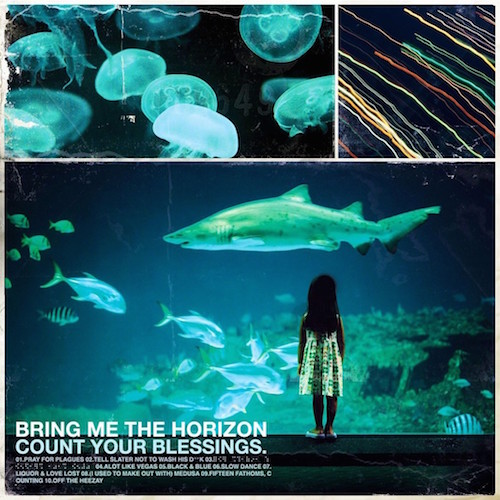
Brand New
The Devil and God are Raging Inside Me
Mother of God … where to even start with this record? It’s easily the best Brand New album. It’s dark, introspective, catchy, anthemic, subdued, philosophical, energetic … and a bunch of other really appropriate adjectives. It’s kind of like a heavier Radiohead, but also not at all. Some songs sound like a more complex, brooding Modest Mouse, but then the very next track flips that on it’s head and makes comparison apocryphal. It has live-staple bangers like Jesus Christ and Limousine (MS Rebridge), alongside Luca as an acoustic heartbreaker and Welcome To Bangkok as an explosive, instrumental jam-band freak out. The chorus in You Won’t Know is positively meteoric, and the “Yeah!” that rips open Sowing Season is still worthy of goosebumps. There’s shades of indie propulsion in the dancey rhythms of The Archers Bows Have Broken, and if you want a deep-and-meaningful soundtrack, look no further than Degausser. Long story short, The Devil And God Are Raging Inside Me is an incredible rock album of biblical proportions, and there isn’t anything else quite like it. //Owen Morawitz
